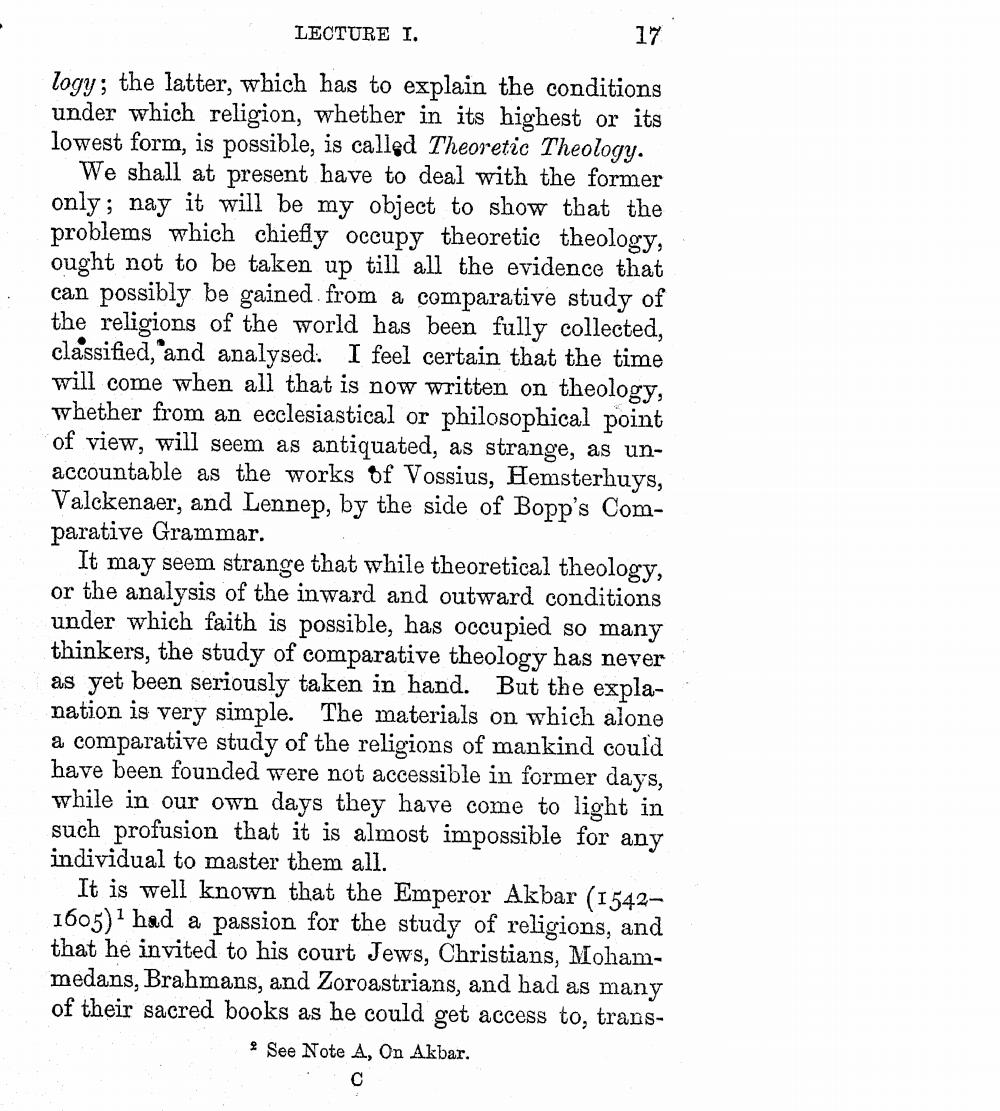________________
LECTURE I.
17
logy; the latter, which has to explain the conditions under which religion, whether in its highest or its lowest form, is possible, is called Theoretic Theology.
We shall at present have to deal with the former only; nay it will be my object to show that the problems which chiefly occupy theoretic theology, ought not to be taken up till all the evidence that can possibly be gained from a comparative study of the religions of the world has been fully collected, classified, and analysed. I feel certain that the time will come when all that is now written on theology, whether from an ecclesiastical or philosophical point of view, will seem as antiquated, as strange, as unaccountable as the works of Vossius, Hemsterhuys, Valckenaer, and Lennep, by the side of Bopp's Comparative Grammar.
It may seem strange that while theoretical theology, or the analysis of the inward and outward conditions under which faith is possible, has occupied so many thinkers, the study of comparative theology has never as yet been seriously taken in hand. But the explanation is very simple. The materials on which alone a comparative study of the religions of mankind could have been founded were not accessible in former days, while in our own days they have come to light in such profusion that it is almost impossible for any individual to master them all.
It is well known that the Emperor Akbar (15421605) had a passion for the study of religions, and that he invited to his court Jews, Christians, Mohammedans, Brahmans, and Zoroastrians, and had as many of their sacred books as he could get access to, trans
| . See Note A, On Akbar.




